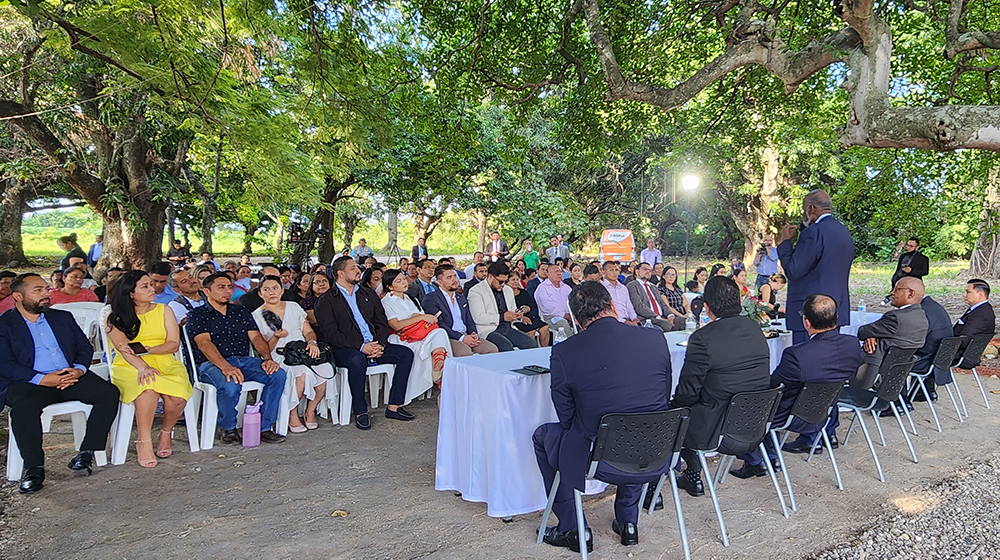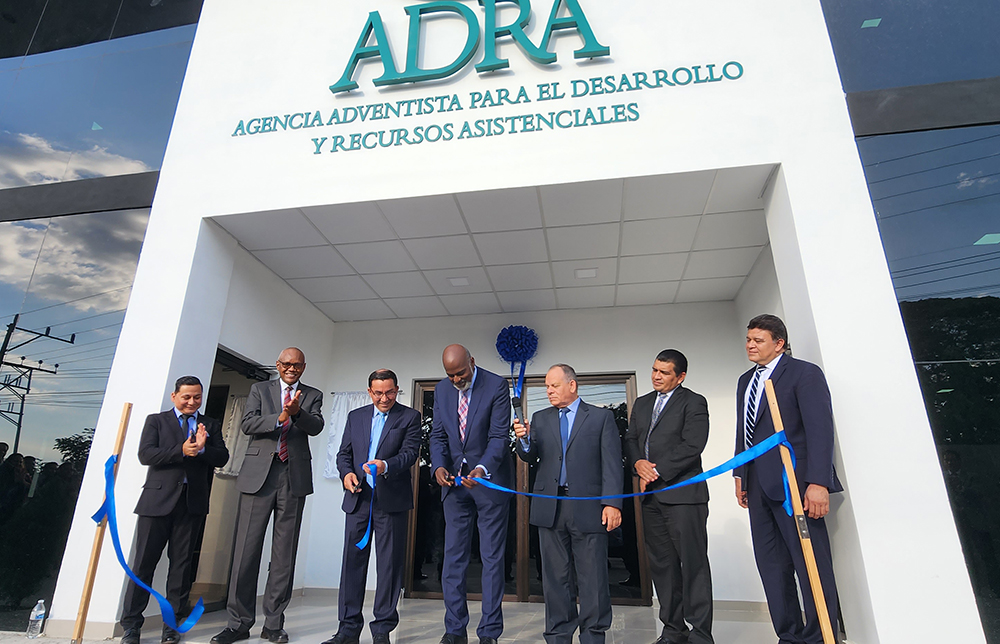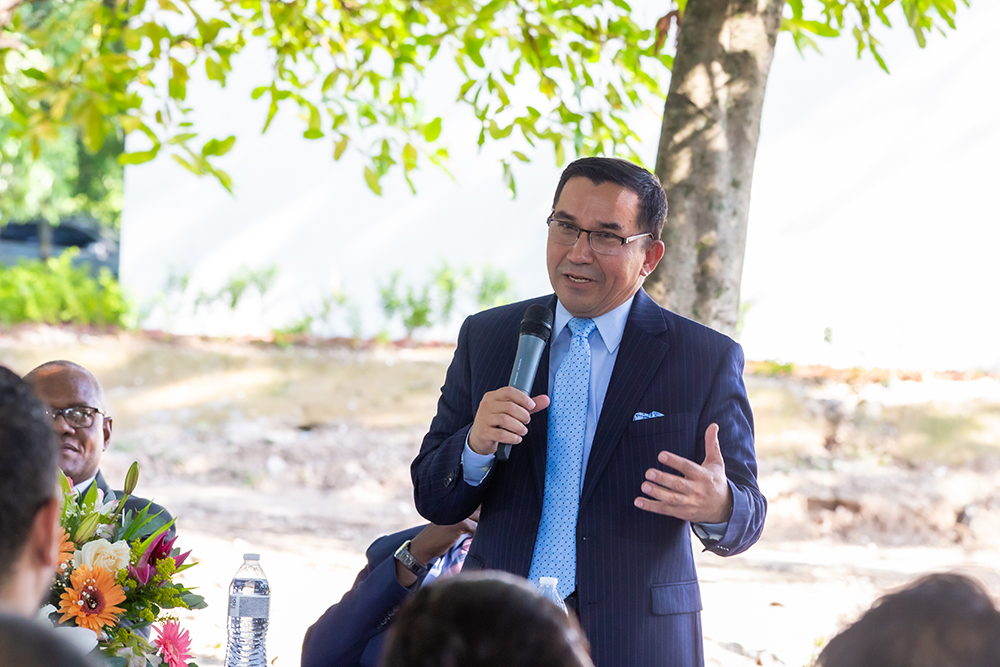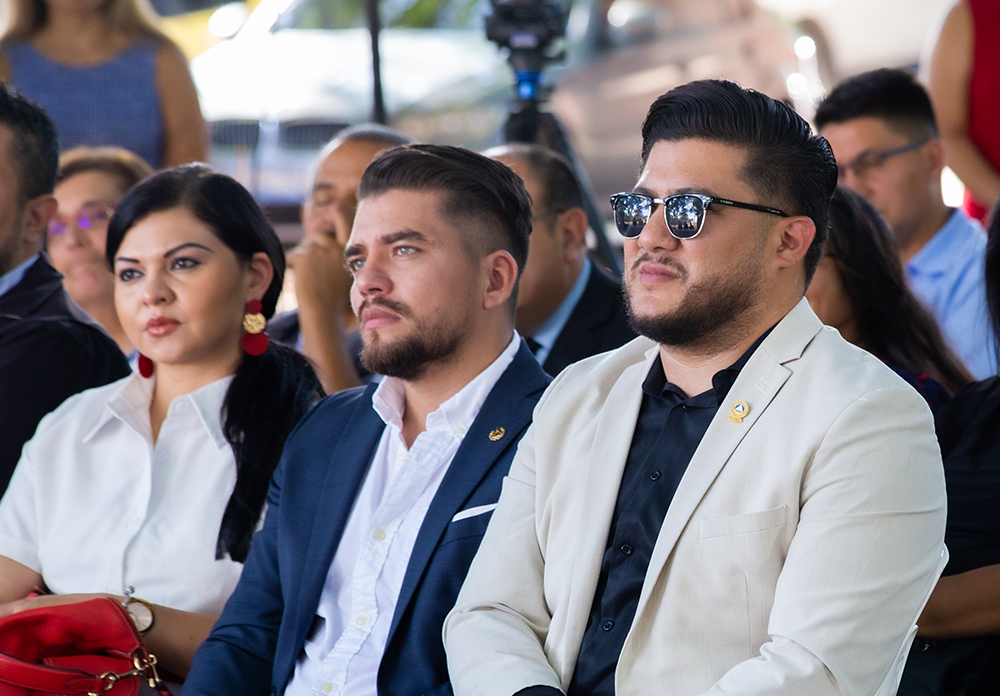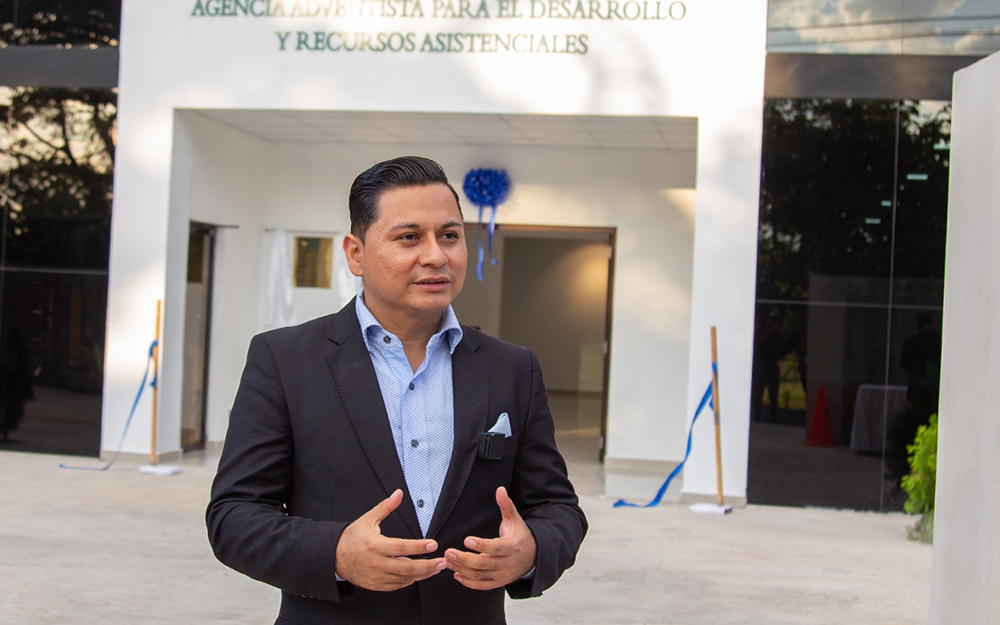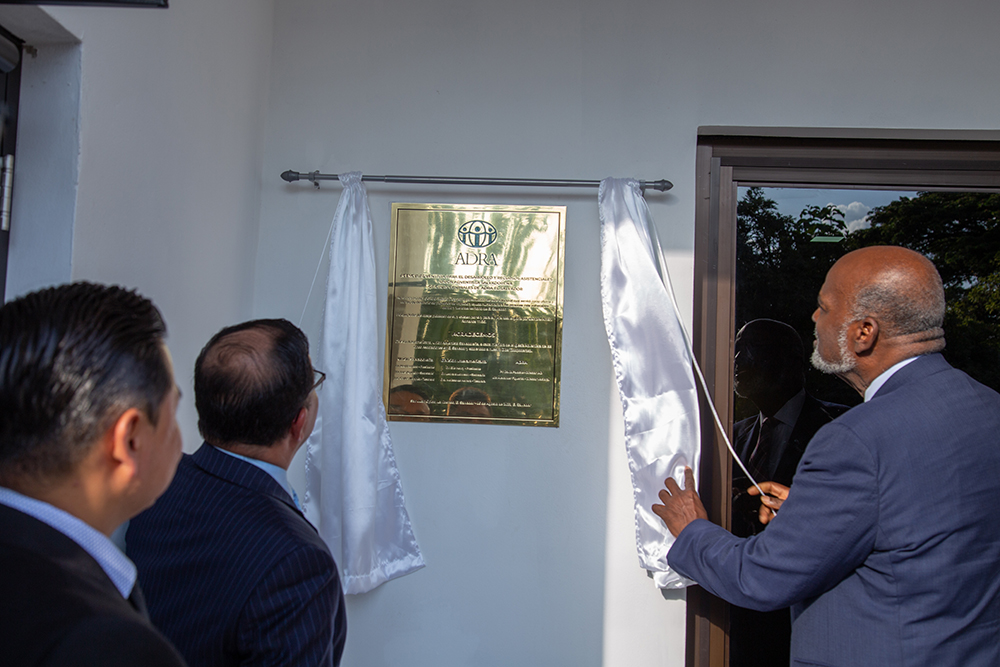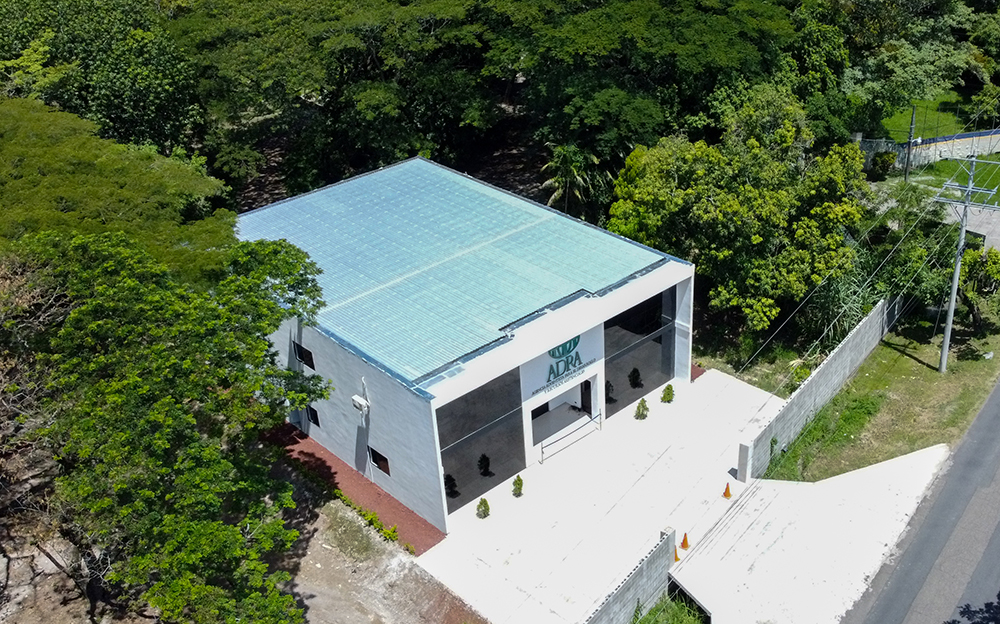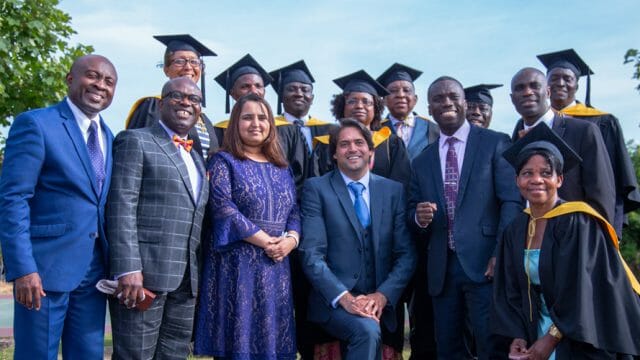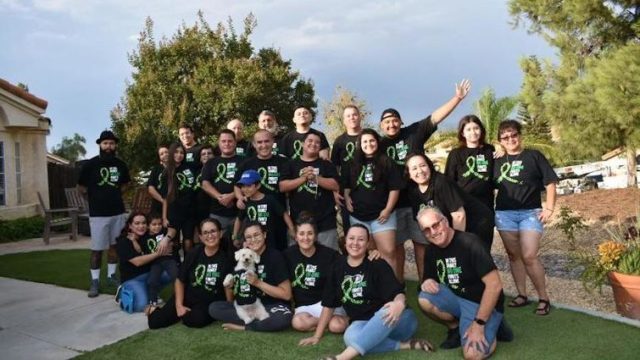The new building includes space for volunteer training and work
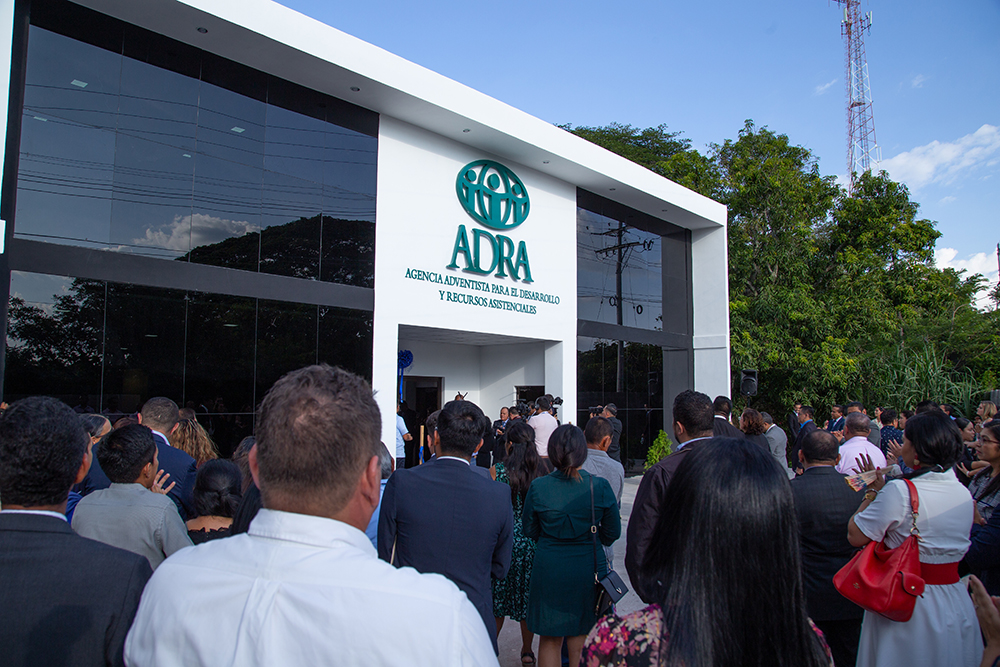
The Adventist Development and Relief Agency (ADRA) in El Salvador inaugurated its new headquarters during a special ceremony held in San Juan Opico, Libertad Department, on August 6. Dozens of church leaders, government officials, church members, and students from ADRA’s literacy program gathered to witness a 22-year dream come true.
Nestled on the campus of the Adventist Training School operated by the church, the two-story building will allow more space for staff, volunteer training, workshops, and special training events for the community, church leaders said.
“I have extraordinary joy in my heart today,” Elie Henry, president of the Inter-American Division (IAD) of the Seventh-day Adventist Church, said, “to see that this new ADRA building follows the great work done by so many people involved in acts of kindness, in preaching, educating, and serving the community.” This was exactly the method that Jesus taught while on earth, Henry said, as he congratulated the church for its visionary leadership in that Central American country.
A Center of Operations
The new facilities will serve as a center of operations for the activities of ADRA El Salvador and strengthen its image before civil and government authorities, ADRA Inter-America director David Poloche said. “Consolidating operations and coordinating efforts in one place will bring stability and effectiveness to the organization’s work,” he said. “This new building represents a step forward in transforming ADRA from a central entity focused on emergency relief to a driving force of community development and improvements in the quality of life.”
The new ADRA building consists of nine offices, two meeting rooms, a conference/training room for 70 people, a reception area on each floor, a storage room, an employee kitchen, five restrooms, and one one-bedroom apartment.
“We praise God and thank the many people who have helped make this ADRA office a reality,” Abel Pacheco, president of the Adventist Church in El Salvador, said. “For us, ADRA is not a building; ADRA is us, people who assist the community. As the Adventist Church, we support each other and collaborate on projects or when emergencies occur.”
For many beneficiaries, ADRA is a macro tunnel in agriculture, or a teacher who teaches them to read and write, Pacheco added. “By God’s grace we will continue to serve and support those most in need.”
For many years since ADRA El Salvador was officially established in 2001, operations were run from several rented facilities in San Salvador, the capital city, 30 minutes’ drive from where the new building now stands. “ADRA’s building is stationed in a very good location, free from the traffic and in a central route where it connects to the different regions of the country without the need to go through the capital city,” Pacheco said. It became difficult to purchase a location in the city, he explained, so the property owned by the church’s training school proved to be more beneficial.
Growing Literacy and Social Assistance Projects
Frank Menjivar, a member of the Central American Parliament, praised the work of ADRA in partnership with the government and mayoral offices for initiatives such as literacy and social assistance programs.
“It’s important to be able to rely on ADRA as a formal organization; it makes it easier for the government to work in collaboration to meet the needs in the country,” Menjivar said. “With ADRA, we have been able to reach communities and people with literacy programs that go hand-in-hand with the Ministry of Education. We have provided wheelchairs and walkers in support of the health ministry or the National Rehabilitation Institute,” he said. “For us, this is fundamental and key in identifying needs in small settlements. Just knowing that ADRA is not only present here but all around the world gives us more confidence.”
ADRA El Salvador is committed to continuing to help people live better lives, ADRA El Salvador director Alex Figueroa said. “El Salvador has historically been an underdeveloped country due to different social challenges; there are needs in the area of education and literacy, among others,” he explained.
Trained Volunteers
ADRA’s new location has more than 150 trained volunteers who teach in the literacy program for adults and the elderly, Figueroa said. Every year, more than 1,000 people go through the literacy program, he added.
Maria Celia Santos, a retired teacher, is among the dozens of volunteers who spend time every week as a facilitator in the literacy course that ADRA oversees. She said she was excited to be part of the inauguration ceremony of the new ADRA offices. “I am so happy to be part of ADRA and this project,” Santos said. “It’s something that I plan to continue until God calls me to rest. I feel blessed by every person that I teach to read and write.”
ADRA El Salvador is also involved in entrepreneurship programs that include vegetable gardens, family poultry farms, and programs to assist single mothers and their young children, Figueroa reported. “We keep asking God to help us to make ADRA a benchmark institution to help others.”
The original version of this story was posted on the Inter-American Division news page.


